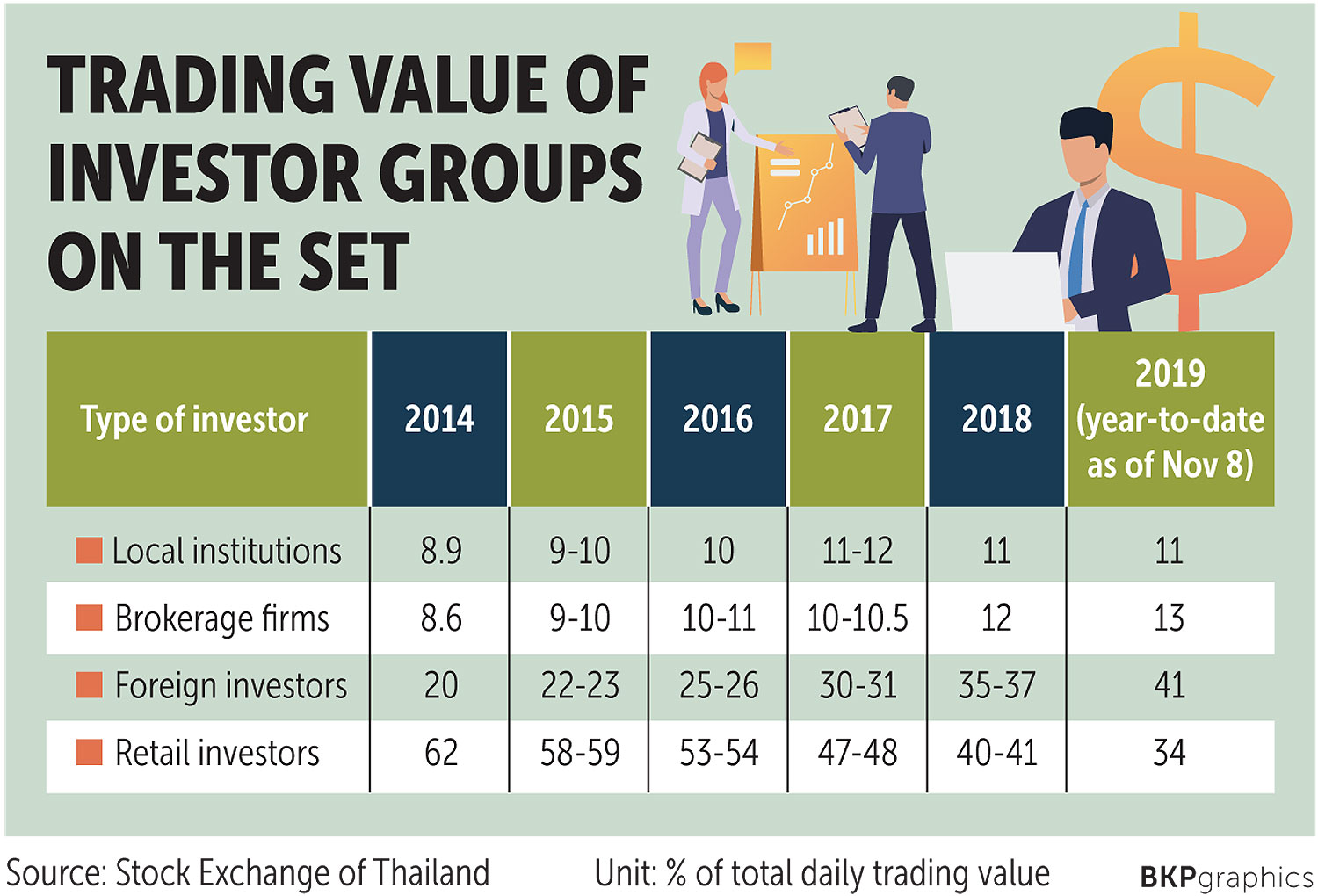Thailand: Changing behaviour, IT hit retail investors’ value
The proportion of retail investors in total market trading value has dwindled by half amid changes in investor behaviour and the advent of high-speed algorithmic trading programs.
Montree Sornpaisarn, chief executive of Maybank Kim Eng Securities Thailand, which has the largest market share in Thailand, said high-speed algorithmic trading programs, especially those related to arbitrage pricing, have affected equity speculation by retail investors because they cannot compete.
Trading orders are executed using automated pre-program trading instructions at high frequency.
Both algorithmic trading and high-frequency trading programs are accounting for more than 20% of total market trading value on a daily basis, Mr Montree said.
The ratio is a significant increase from the past, while the proportion of retail investors’ trading value has declined to around 30% from 60% previously, he said.
Besides causing fluctuations in the stock market, high-speed algorithmic trading programs have led many retail investors to switch to investing in mutual funds or alternative assets.
These trading programs have become widely adopted in stock markets worldwide as a new technology-based investment tool.
They present a challenge for market regulators, who can create or modify their legal securities frameworks to better regulate trading activities and enhance investor protection.
“Thailand’s stock market has a different characteristic from its regional counterparts because we used to have retail investors leading total market trading valuation,” Mr Montree said. “But at the moment, this investor group has declined to around 30%, but the bourse’s daily turnover has increased from the past.
“We do not know in detail which other investor groups are responsible for the increase in daily trading volume.”
Securities firms with a large customer base of retail investors have been experiencing difficulties as the trading volume of this investor group continues to decline.
In a further blow, securities trading fees have fallen to about 0.10% per trade, putting pressure on profits and operating costs as a result.
Trading fees are likely to keep declining amid higher competition in the securities industry.
Pattera Dilokrung-thirapop, chief executive of DBS Vickers Securities Thailand, said there are three main reasons contributing to the shrinking retail investor portion of total market trade value.
First, retail investors’ behaviour has changed from the past because they have been exposed to investment strategies designed for better returns. This causes investors to have a long investment period either in equities or mutual funds investing in equities.
Second, investors have begun putting more money to invest in derivatives listed on the Thailand Futures Exchange, reflected in higher trading value and rising retail investor trading on the TFEX.
Third, investors have more choices available for offshore investment, either by direct investment or through local brokerage firms.


 Thailand
Thailand





